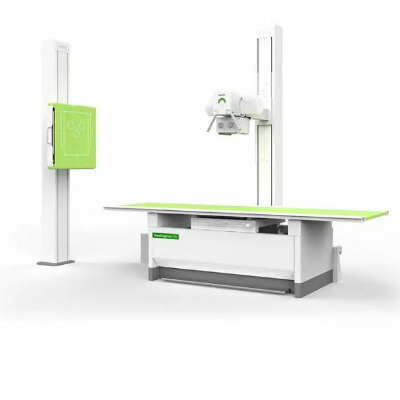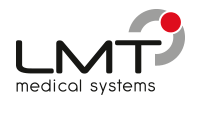World’s Most Powerful MRI Machine Images Living Brain with Unrivaled Clarity
|
By MedImaging International staff writers Posted on 03 Apr 2024 |

The world's most powerful magnetic resonance imaging (MRI) scanner has generated its first images of the human brain, demonstrating new precision levels that could shed more light on the mysterious human mind—and the illnesses that plague them.
The Atomic Energy Commission (CEA, Paris, France) has released groundbreaking in vivo human brain images captured with the Iseult MRI machine, boasting a, unparalleled magnetic field strength of 11.7 teslas. This milestone is the culmination of over two decades of research and development within the Iseult project, which aimed to construct the world's most powerful MRI machine in order to explore the human brain's anatomy, connectivity, and functions with unmatched clarity. In an initial study involving around 20 healthy volunteers, it took merely about four minutes to acquire some of the most detailed anatomical brain images ever seen, thanks to the Iseult MRI machine's advanced MRI technology and its 11.7-tesla magnetic field intensity. This level of power enables the machine to produce images with tenfold the precision of standard MRI scanners found in hospitals today. The images captured boast an extraordinary resolution — 0.2 mm in-plane resolution and 1 mm slice thickness — equivalent to the volume of several thousand neurons.
In comparison, achieving similar image quality with the 1.5 or 3 tesla MRI scanners currently in use at hospitals would take several hours, which would be impractical due to discomfort and potential movements disrupting the clarity of images. The enhanced resolution made possible by the Iseult MRI machine opens the door to gaining insights into brain mechanisms previously beyond reach, including understanding the brain's method of encoding mental representations and identifying neuronal signatures associated with the state of consciousness. The implications of this technology for medical research are profound. Firstly, it provides ultra-detailed anatomical data crucial for diagnosing and treating neurodegenerative conditions such as Alzheimer's and Parkinson's diseases. Secondly, it enhances the ability to detect chemical species with faint signals that lower magnetic fields struggle to capture. Scientists are particularly interested in using this technology to observe how drugs like lithium, used in treating bipolar disorder, are distributed within the brain, potentially revealing which patients are more likely to benefit from specific treatments. However, the extraordinary capabilities of the Iseult MRI machine will, for the time being, remain beyond the reach of regular patient diagnostics and care.
“With the Iseult project, a whole new world is opening up before our eyes, and we are excited to explore it, said Nicolas Boulant, the Head of the Iseult project and Director of Research at the CEA. “We still need several years of research to develop and improve our acquisition methods and ensure that the data has the highest quality possible. Our goal is to investigate neurodegenerative diseases by 2026-2030, as well as other diseases that fall more under psychiatry, such as schizophrenia and bipolar disorders. Cognitive sciences will also be of key importance in our research!”
Related Links:
CEA
Latest MRI News
- PET/MRI Improves Diagnostic Accuracy for Prostate Cancer Patients
- Next Generation MR-Guided Focused Ultrasound Ushers In Future of Incisionless Neurosurgery
- Two-Part MRI Scan Detects Prostate Cancer More Quickly without Compromising Diagnostic Quality
- New Whole-Body Imaging Technology Makes It Possible to View Inflammation on MRI Scan
- Combining Prostate MRI with Blood Test Can Avoid Unnecessary Prostate Biopsies
- New Treatment Combines MRI and Ultrasound to Control Prostate Cancer without Serious Side Effects
- MRI Improves Diagnosis and Treatment of Prostate Cancer
- Combined PET-MRI Scan Improves Treatment for Early Breast Cancer Patients
- 4D MRI Could Improve Clinical Assessment of Heart Blood Flow Abnormalities
- MRI-Guided Focused Ultrasound Therapy Shows Promise in Treating Prostate Cancer
- AI-Based MRI Tool Outperforms Current Brain Tumor Diagnosis Methods
- DW-MRI Lights up Small Ovarian Lesions like Light Bulbs
- Abbreviated Breast MRI Effective for High-Risk Screening without Compromising Diagnostic Accuracy
- New MRI Method Detects Alzheimer’s Earlier in People without Clinical Signs
- MRI Monitoring Reduces Mortality in Women at High Risk of BRCA1 Breast Cancer
- Breakthrough AI-Based Quantitative Brain Imaging in MR to Advance Neurology Care
Channels
Radiography
view channel
Novel Breast Imaging System Proves As Effective As Mammography
Breast cancer remains the most frequently diagnosed cancer among women. It is projected that one in eight women will be diagnosed with breast cancer during her lifetime, and one in 42 women who turn 50... Read more
AI Assistance Improves Breast-Cancer Screening by Reducing False Positives
Radiologists typically detect one case of cancer for every 200 mammograms reviewed. However, these evaluations often result in false positives, leading to unnecessary patient recalls for additional testing,... Read moreUltrasound
view channel
Deep Learning Advances Super-Resolution Ultrasound Imaging
Ultrasound localization microscopy (ULM) is an advanced imaging technique that offers high-resolution visualization of microvascular structures. It employs microbubbles, FDA-approved contrast agents, injected... Read more
Novel Ultrasound-Launched Targeted Nanoparticle Eliminates Biofilm and Bacterial Infection
Biofilms, formed by bacteria aggregating into dense communities for protection against harsh environmental conditions, are a significant contributor to various infectious diseases. Biofilms frequently... Read moreNuclear Medicine
view channel
New SPECT/CT Technique Could Change Imaging Practices and Increase Patient Access
The development of lead-212 (212Pb)-PSMA–based targeted alpha therapy (TAT) is garnering significant interest in treating patients with metastatic castration-resistant prostate cancer. The imaging of 212Pb,... Read moreNew Radiotheranostic System Detects and Treats Ovarian Cancer Noninvasively
Ovarian cancer is the most lethal gynecological cancer, with less than a 30% five-year survival rate for those diagnosed in late stages. Despite surgery and platinum-based chemotherapy being the standard... Read more
AI System Automatically and Reliably Detects Cardiac Amyloidosis Using Scintigraphy Imaging
Cardiac amyloidosis, a condition characterized by the buildup of abnormal protein deposits (amyloids) in the heart muscle, severely affects heart function and can lead to heart failure or death without... Read moreGeneral/Advanced Imaging
view channel
New AI Method Captures Uncertainty in Medical Images
In the field of biomedicine, segmentation is the process of annotating pixels from an important structure in medical images, such as organs or cells. Artificial Intelligence (AI) models are utilized to... Read more.jpg)
CT Coronary Angiography Reduces Need for Invasive Tests to Diagnose Coronary Artery Disease
Coronary artery disease (CAD), one of the leading causes of death worldwide, involves the narrowing of coronary arteries due to atherosclerosis, resulting in insufficient blood flow to the heart muscle.... Read more
Novel Blood Test Could Reduce Need for PET Imaging of Patients with Alzheimer’s
Alzheimer's disease (AD), a condition marked by cognitive decline and the presence of beta-amyloid (Aβ) plaques and neurofibrillary tangles in the brain, poses diagnostic challenges. Amyloid positron emission... Read more.jpg)
CT-Based Deep Learning Algorithm Accurately Differentiates Benign From Malignant Vertebral Fractures
The rise in the aging population is expected to result in a corresponding increase in the prevalence of vertebral fractures which can cause back pain or neurologic compromise, leading to impaired function... Read moreImaging IT
view channel
New Google Cloud Medical Imaging Suite Makes Imaging Healthcare Data More Accessible
Medical imaging is a critical tool used to diagnose patients, and there are billions of medical images scanned globally each year. Imaging data accounts for about 90% of all healthcare data1 and, until... Read more
Global AI in Medical Diagnostics Market to Be Driven by Demand for Image Recognition in Radiology
The global artificial intelligence (AI) in medical diagnostics market is expanding with early disease detection being one of its key applications and image recognition becoming a compelling consumer proposition... Read moreIndustry News
view channel
Bayer and Google Partner on New AI Product for Radiologists
Medical imaging data comprises around 90% of all healthcare data, and it is a highly complex and rich clinical data modality and serves as a vital tool for diagnosing patients. Each year, billions of medical... Read more




















